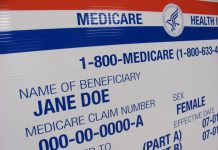On September 2, 2016, the Food and Drug Administration (FDA) issued a rule that will ban antibacterial soaps containing triclosan, triclocarban, and 18 other ingredients. The ban becomes effective September 6, 2017.
What’s Wrong With Antibacterial Soaps?
The problem isn’t so much the concept of germ-killing soaps. Instead, the problems are: (1) the ingredients aren’t known to be safe for human use; and (2) there is no scientific evidence that antibacterial soaps actually prevent illness.
There is also a risk: bacteria that are exposed to antibacterial agents develop a resistance. In other words, eventually, the antibiotics no longer work to kill those germs. And when there are no effective antibiotics, people with infections can die. That’s why the American Medical Association has recommended since 2002 that consumers NOT use antibacterial soaps in their own homes.
Triclosan
Triclosan is one of the most commonly used antibacterials. It has been around since about 1960, when it was developed for use as a pesticide. Animal studies have shown that triclosan can change the way hormones—including thyroid hormones— work in the body. We don’t know yet how exposure to triclosan affects the human body. For whatever reason, the FDA did not require rigorous testing to prove safety or effectiveness before the industry started marketing antibacterial soaps. Rather, the agency accepted industry assurances that the materials were generally recognized as safe (GRAS) and effective (GRAE).
But scientific evidence began to show that these assumptions were not true. Nine years ago, the Environmental Working Group (EWG) found that triclosan and other harmful agents were present in San Francisco Bay at “disturbing levels.” And EWG found triclosan in breast milk and in the blood and urine of teenage girls. Triclosan, trichlocarban, and similar agents are in many products that we ingest or put on our bodies, including food, soap, cosmetics, toothpaste, and clothing.
In 2013, the FDA published a proposed rule asking the companies that use antibacterial materials to present data showing that they were safe and effective. But the makers of antibacterial products did not submit data that proved either safety or effectiveness. Many of them began to phase out these ingredients. The final rule published on September 2 will help finish the job.
Exceptions
The final rule applies to “consumer washes,” that is, products intended to be used with water. The FDA is delaying action on three ingredients, benzalkonium chloride, benzethonium chloride and chloroxylenol (PCMX), allowing industry another year to submit safety and effectiveness data. The rule also does not apply to wipes or hand sanitizers. The agency is handling these products in separate rulemaking.
The Bottom Line
The FDA has determined that antibacterial soaps do not keep us safer. They do not prevent infection. They are no more effective at preventing illness than rinsing your hands. For healthy people who are cleaning their hands at home, the very best thing to do is to wash the hands thoroughly with soap and water.
Featured image is a YouTube screengrab.




